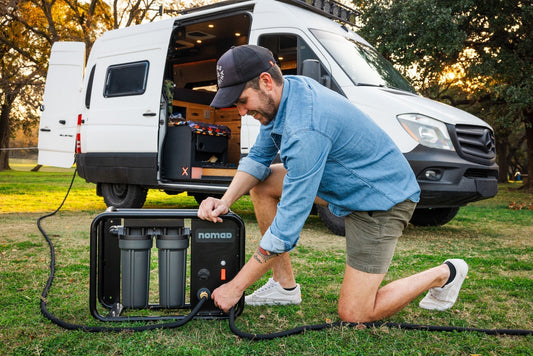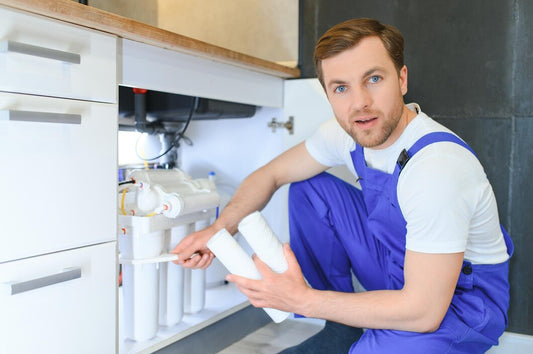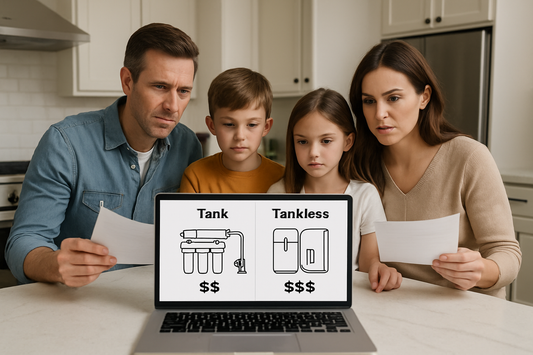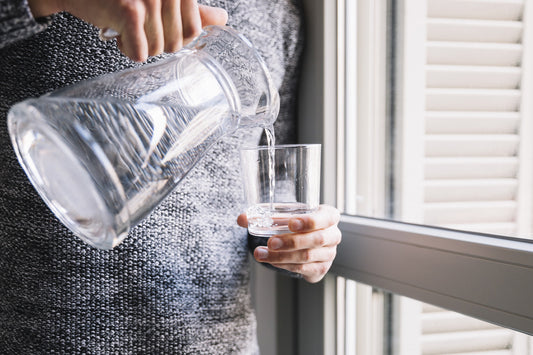You're parked at a stunning remote campsite, surrounded by towering pines and crystal-clear mountain views. The only problem? The water coming from your RV's tank tastes like it's been sitting in a garden hose for weeks. Sound familiar? You're not alone in this struggle that thousands of RV enthusiasts face every single trip.
Whether you're a weekend warrior or a full-time nomad, water quality can make or break your off-grid adventure. That metallic taste, strange odors, or worse – the worry about what contaminants might be lurking in campground water – these concerns shouldn't overshadow the freedom of the open road.
The Hidden Water Challenges Every RVer Faces
Your home's water system is a luxury you don't fully appreciate until you're dealing with questionable water sources on the road. Unlike your residential setup, RV water filter systems must handle an entirely different set of challenges:
Inconsistent Water Sources: From municipal campground supplies to questionable well water at remote sites, you never know what you're getting. Each new destination brings a fresh mystery of taste, smell, and potential contaminants.
Storage Tank Issues: Even if your initial water source is pristine, sitting in your RV's holding tank for days creates its own problems. Bacteria growth, stagnant taste, and plastic flavors become unwelcome travel companions.
Pressure Fluctuations: RV plumbing systems operate differently than home systems. Your water filter system for RV needs to handle varying water pressures without compromising filtration effectiveness.
Space and Weight Constraints: Every inch and pound matters in an RV. Your filtration solution must be compact, lightweight, and efficient – no room for bulky residential systems here.
Why Standard Filters Fall Short for Off-Grid Living
You might think grabbing a basic inline filter from the hardware store will solve your water woes. Think again. Off grid water filtration demands specialized solutions that can handle the unique challenges of mobile living.
Single-stage filters simply can't tackle the multi-layered problems you'll encounter. That chlorine taste from city water? A carbon filter can handle it. But what about the sediment from that rural campground well? Or the bacteria that might be multiplying in your tank? You need a systematic approach.

The Game-Changing 3-Stage Approach
This is where the Blu Technology AR3 3-Stage RV Water Filter System transforms your water experience. Instead of hoping a single filter catches everything, this system creates multiple barriers of protection:
Stage 1: Sediment Pre-Filter tackles the big stuff – rust, dirt, and particles that make water look cloudy and taste gritty. This protects the downstream filters and extends their life.
Stage 2: Carbon Block Filter eliminates chlorine, chemical tastes, and odors that make campground water unpalatable. This is where your water starts tasting like water again.
Stage 3: 0.2-Micron Final Filter provides the ultimate protection against bacteria, cysts, and microscopic contaminants that could ruin your adventure with illness.
The beauty of this system lies in its high-flow design. You're not sacrificing water pressure for filtration quality – something crucial when you're trying to fill your coffee pot at 6 AM before a hiking adventure.
Real-World Installation for Weekend Warriors
Installing your RV water filter system shouldn't require an engineering degree. The AR3's quick-connect fittings mean you can have clean water flowing in minutes, not hours.
Pre-Trip Setup: Connect the system between your city water inlet and RV plumbing. The compact 14" x 6.5" x 8.5" aluminum frame fits easily in most utility compartments.
On-Site Connection: Simply attach your campground hose to the inlet, and you're ready to roll. No tools needed for basic connection.
Storage Preparation: When moving between sites, the system can remain connected or be quickly disconnected for secure transport.
The stainless steel canisters aren't just for looks – they're built to handle the bumps, vibrations, and temperature fluctuations that come with life on the road.
Maintenance That Fits Your Adventure Schedule
Water filtration off grid requires a different maintenance approach than residential systems. The AR3 system is designed around the reality of RV life:
Filter Replacement Schedule: Every 3-4 months or after major trips, depending on your water quality. The system's design makes filter changes quick and mess-free.
Seasonal Preparation: Before winter storage, a simple flush-and-drain procedure prevents freeze damage. Come spring, you're ready to hit the road again.
Travel Day Routine: The system handles the constant motion of travel without issues. No special preparation needed when it's time to break camp.

Troubleshooting Common Off-Grid Water Issues
Even with the best RV water filter system, you might encounter challenges. Here's how to address them:
Reduced Water Flow: Usually indicates it's time to replace the first-stage sediment filter. Keep spare filters on hand for extended trips.
Persistent Taste Issues: If water still tastes off after filter replacement, the problem might be your storage tank. A tank sanitization might be needed.
System Leaks: Check all connections first. The quick-connect fittings are designed for easy tightening without tools.
Cold Weather Concerns: The system operates effectively in temperatures from 40°F to 125°F. In extreme cold, consider temporary removal to prevent freezing.
The Investment That Pays for Itself
When you calculate the cost of constantly buying bottled water for cooking, drinking, and coffee during your adventures, a quality water filter system for RV becomes an obvious choice. The AR3 system pays for itself in just a few extended trips.
More importantly, you gain peace of mind. No more wondering if that stomach upset was from the campground food or the water. No more limiting your cooking because you don't trust your water supply.

Making Every Adventure About the Experience, Not the Water
The best off grid water filtration system is the one you forget about – because it simply works. When you're focused on that perfect sunrise photo or navigating a challenging trail, water quality should be one less thing to worry about.
Your RV adventures deserve the same water quality you'd expect at home. With the right 3-stage system, every campsite becomes a basecamp for your next great adventure, not a question mark about what's coming out of your faucet.
Whether you're planning a weekend escape or embarking on a cross-country journey, investing in proper RV water filter system technology means more time enjoying the journey and less time worrying about the basics.
Frequently Asked Questions
How often should I replace RV water filters?
Replace filters every 3-4 months or after 6,000-8,000 gallons, whichever comes first. Heavy use or poor water quality may require more frequent changes.
Can I use my RV water filter in freezing temperatures?
The AR3 system operates safely between 40°F-125°F. In freezing conditions, remove and store the system indoors to prevent damage.
Do I need to sanitize my RV tank with a water filter?
Yes, tank sanitization should be performed seasonally regardless of filtration. Filters protect against incoming contaminants but won't clean existing tank bacteria.
What's the difference between RV and home water filters?
RV filters must handle pressure fluctuations, vibration, and varying water sources while being compact and lightweight. Home filters are designed for consistent municipal water.
How do I know when my RV water filter needs replacement?
Reduced water flow, return of taste/odor issues, or reaching the 3-4 month replacement schedule are clear indicators it's time for new filters.





